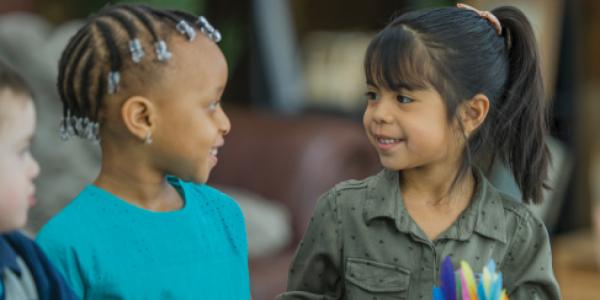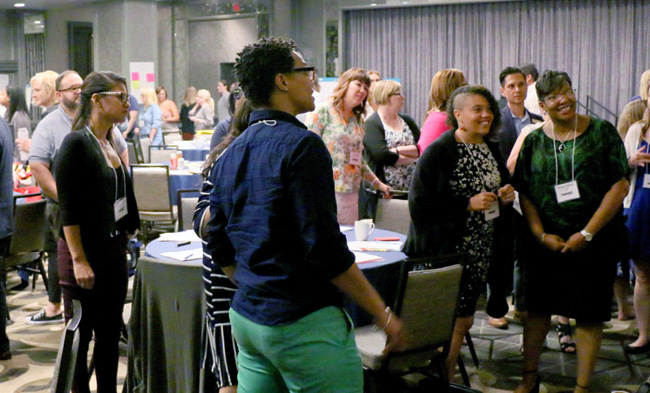NAEYC Is Committed to Increasing Equity

You are here
Creating equitable learning opportunities for all young children is at the core of NAEYC’s mission. Based on high-quality research and our values, we are committed to recognizing and building on each child’s individual and family strengths, cultural background, home language, abilities, and experiences.
We’re working with the field
Drawing on our three decades of promoting and supporting anti-bias education, NAEYC—and most importantly, thousands of NAEYC members—developed a new position statement, “Advancing Equity in Early Childhood Education,” which is now being endorsed by education organizations across the country. It combines a strong research foundation with ambitious recommendations for educators, administrators, professors, and policymakers. The heart of these recommendations is captured in the bold call to action that opens the statement:
All children have the right to equitable learning opportunities that help them achieve their full potential as engaged learners and valued members of society. Thus, all early childhood educators have a professional obligation to advance equity. They can do this best when they are effectively supported by the early learning settings in which they work and when they and their wider communities embrace diversity and full inclusion as strengths, uphold fundamental principles of fairness and justice, and work to eliminate structural inequities that limit equitable learning opportunities.
And working within NAEYC
For NAEYC to be a leader in equity, we have to—and want to—live our values. We believe that the early education profession should reflect the great diversity (racial, cultural, linguistic, and more) of the children and families served. We believe NAEYC’s membership should not only reflect but include the full early childhood field. And we believe that NAEYC must strive to continuously improve as a high-performing, inclusive organization.

NAEYC took a big step forward in this work through a three-day summit that brought together our entire national governing board and many leaders from our affiliates, interest forums, advisory councils, and staff. Participants dove into deep, systemic problems:
I stood at the Lincoln Memorial yesterday, in the spot Martin Luther King stood to deliver his “I Have a Dream” speech, and had tears in my eyes as I thought, “How can we still be here? Why haven’t we made more progress?”
In doing so, they found a renewed commitment to the promise of early childhood education:
I have a new understanding of equity and a better appreciation of belonging. I really like the “know your why” so that your what has more purpose.
For these resources—and many more—on advancing equity, visit NAEYC.org/equity. You’ll find links to inspiring articles from Young Children and Teaching Young Children that highlight how dedicated, intentional educators are creating equitable learning opportunities and maximizing children’s learning.
“I realized that I’ve never known how I might impact someone—for good or for bad—unintentionally. This is an important discussion, and I plan to bring some of it back to my organization. I hope I will be brave enough to continue to have these discussions with the people around me.” —Summit participant
For these resources—and many more—on advancing equity, visit NAEYC.org/equity. You’ll find links to inspiring articles from Young Children and Teaching Young Children that highlight how dedicated, intentional educators are creating equitable learning opportunities and maximizing children’s learning.
Copyright © 2019 by the National Association for the Education of Young Children. See Permissions and Reprints online at NAEYC.org/resources/permissions.
Photographs: 1, 2 © Getty Images; 1 © Jason Williams